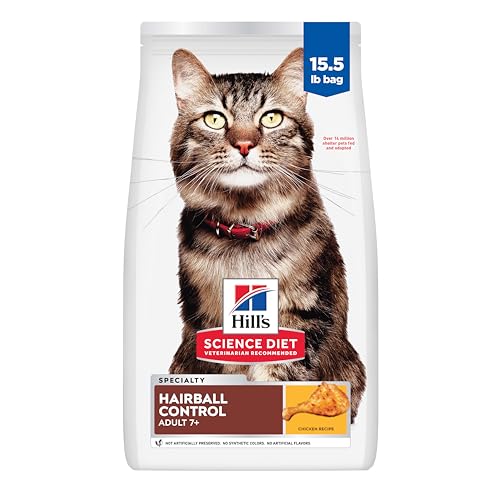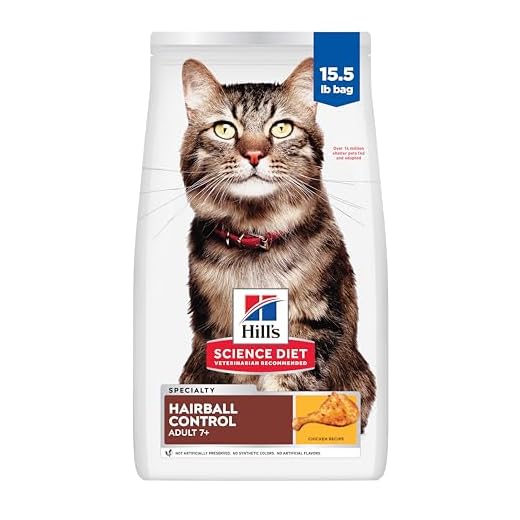

Applying a few drops of fish oil can significantly improve moisture levels in a feline’s coat. Rich in omega-3 fatty acids, this natural remedy not only nourishes the skin but also supports overall health. A daily drizzle over food ensures a palatable experience for your furry friend.
Another effective solution includes using coconut oil, known for its emollient properties. Gently massaging a small amount onto affected areas brings immediate hydration and comfort. Just a little goes a long way, so moderation is key.
Consider incorporating oatmeal-based shampoos into grooming routines. These products soothe irritation and provide a soft, smooth finish. Look for options specifically designed for pets, ensuring safety and compatibility with sensitive skin.
Lastly, a balanced diet rich in vitamins and minerals plays a crucial role in maintaining healthy skin. High-quality cat food, supplemented with probiotics, can enhance skin resilience and reduce dryness. Always consult with a veterinarian before making any dietary changes.
Top Natural Remedies for Cat Dry Skin
Oatmeal baths offer soothing relief. Simply grind plain oats into a fine powder and mix it with warm water. Soak for about 10-15 minutes, allowing the soothing properties to penetrate the fur and skin.
Coconut oil serves as a moisturizer. Apply a small amount directly to affected areas. This natural remedy helps hydrate and can alleviate irritation, promoting a healthier coat.
Fish oil is beneficial due to its omega-3 fatty acids. Incorporating a high-quality fish oil supplement into meals can enhance skin health and reduce dryness over time.
Aloe vera provides calming effects. Extract fresh gel from the plant and apply it to dry patches. Its anti-inflammatory properties can soothe irritation and promote healing.
Maintain a humid environment. Using a humidifier during dry seasons can combat environmental factors that contribute to flakiness, creating a comfortable atmosphere.
Herbal infusions, like chamomile or calendula, can be gentle and effective. Brew tea, let it cool, and use it to rinse the fur, providing moisture and calming the skin.
When to Consult a Veterinarian for Cat Skin Issues
If persistent irritation or unusual symptoms arise, it’s time to see a vet. Signs such as excessive scratching, redness, or hair loss warrant immediate attention. Allergies, infections, or parasites could be the underlying issues needing professional diagnosis.
Monitor changes in behavior, like increased hiding or vocalization, as these may indicate discomfort. If home remedies do not yield improvement within a week, professional evaluation is crucial.
For those concerned about dietary influences on skin health, exploring the best foods for cats with kidney disease can be beneficial. Nutritional deficiencies often manifest through skin problems, so ensuring a balanced diet is essential.
Additionally, ensure the cleanliness of your cat’s environment. A clean feeding area is vital; learn how to get ants out of cat food to maintain hygiene. Poor sanitation can exacerbate skin issues.
In summary, timely veterinary consultation is key for skin concerns. Early intervention leads to better outcomes and keeps your feline companion comfortable and healthy.
Applying a few drops of fish oil can significantly improve moisture levels in a feline’s coat. Rich in omega-3 fatty acids, this natural remedy not only nourishes the skin but also supports overall health. A daily drizzle over food ensures a palatable experience for your furry friend.
Another effective solution includes using coconut oil, known for its emollient properties. Gently massaging a small amount onto affected areas brings immediate hydration and comfort. Just a little goes a long way, so moderation is key.
Consider incorporating oatmeal-based shampoos into grooming routines. These products soothe irritation and provide a soft, smooth finish. Look for options specifically designed for pets, ensuring safety and compatibility with sensitive skin.
Lastly, a balanced diet rich in vitamins and minerals plays a crucial role in maintaining healthy skin. High-quality cat food, supplemented with probiotics, can enhance skin resilience and reduce dryness. Always consult with a veterinarian before making any dietary changes.
Top Natural Remedies for Cat Dry Skin
Oatmeal baths offer soothing relief. Simply grind plain oats into a fine powder and mix it with warm water. Soak for about 10-15 minutes, allowing the soothing properties to penetrate the fur and skin.
Coconut oil serves as a moisturizer. Apply a small amount directly to affected areas. This natural remedy helps hydrate and can alleviate irritation, promoting a healthier coat.
Fish oil is beneficial due to its omega-3 fatty acids. Incorporating a high-quality fish oil supplement into meals can enhance skin health and reduce dryness over time.
Aloe vera provides calming effects. Extract fresh gel from the plant and apply it to dry patches. Its anti-inflammatory properties can soothe irritation and promote healing.
Maintain a humid environment. Using a humidifier during dry seasons can combat environmental factors that contribute to flakiness, creating a comfortable atmosphere.
Herbal infusions, like chamomile or calendula, can be gentle and effective. Brew tea, let it cool, and use it to rinse the fur, providing moisture and calming the skin.
When to Consult a Veterinarian for Cat Skin Issues
If persistent irritation or unusual symptoms arise, it’s time to see a vet. Signs such as excessive scratching, redness, or hair loss warrant immediate attention. Allergies, infections, or parasites could be the underlying issues needing professional diagnosis.
Monitor changes in behavior, like increased hiding or vocalization, as these may indicate discomfort. If home remedies do not yield improvement within a week, professional evaluation is crucial.
For those concerned about dietary influences on skin health, exploring the best foods for cats with kidney disease can be beneficial. Nutritional deficiencies often manifest through skin problems, so ensuring a balanced diet is essential.
Additionally, ensure the cleanliness of your cat’s environment. A clean feeding area is vital; learn how to get ants out of cat food to maintain hygiene. Poor sanitation can exacerbate skin issues.
In summary, timely veterinary consultation is key for skin concerns. Early intervention leads to better outcomes and keeps your feline companion comfortable and healthy.
Applying a few drops of fish oil can significantly improve moisture levels in a feline’s coat. Rich in omega-3 fatty acids, this natural remedy not only nourishes the skin but also supports overall health. A daily drizzle over food ensures a palatable experience for your furry friend.
Another effective solution includes using coconut oil, known for its emollient properties. Gently massaging a small amount onto affected areas brings immediate hydration and comfort. Just a little goes a long way, so moderation is key.
Consider incorporating oatmeal-based shampoos into grooming routines. These products soothe irritation and provide a soft, smooth finish. Look for options specifically designed for pets, ensuring safety and compatibility with sensitive skin.
Lastly, a balanced diet rich in vitamins and minerals plays a crucial role in maintaining healthy skin. High-quality cat food, supplemented with probiotics, can enhance skin resilience and reduce dryness. Always consult with a veterinarian before making any dietary changes.
Top Natural Remedies for Cat Dry Skin
Oatmeal baths offer soothing relief. Simply grind plain oats into a fine powder and mix it with warm water. Soak for about 10-15 minutes, allowing the soothing properties to penetrate the fur and skin.
Coconut oil serves as a moisturizer. Apply a small amount directly to affected areas. This natural remedy helps hydrate and can alleviate irritation, promoting a healthier coat.
Fish oil is beneficial due to its omega-3 fatty acids. Incorporating a high-quality fish oil supplement into meals can enhance skin health and reduce dryness over time.
Aloe vera provides calming effects. Extract fresh gel from the plant and apply it to dry patches. Its anti-inflammatory properties can soothe irritation and promote healing.
Maintain a humid environment. Using a humidifier during dry seasons can combat environmental factors that contribute to flakiness, creating a comfortable atmosphere.
Herbal infusions, like chamomile or calendula, can be gentle and effective. Brew tea, let it cool, and use it to rinse the fur, providing moisture and calming the skin.
When to Consult a Veterinarian for Cat Skin Issues
If persistent irritation or unusual symptoms arise, it’s time to see a vet. Signs such as excessive scratching, redness, or hair loss warrant immediate attention. Allergies, infections, or parasites could be the underlying issues needing professional diagnosis.
Monitor changes in behavior, like increased hiding or vocalization, as these may indicate discomfort. If home remedies do not yield improvement within a week, professional evaluation is crucial.
For those concerned about dietary influences on skin health, exploring the best foods for cats with kidney disease can be beneficial. Nutritional deficiencies often manifest through skin problems, so ensuring a balanced diet is essential.
Additionally, ensure the cleanliness of your cat’s environment. A clean feeding area is vital; learn how to get ants out of cat food to maintain hygiene. Poor sanitation can exacerbate skin issues.
In summary, timely veterinary consultation is key for skin concerns. Early intervention leads to better outcomes and keeps your feline companion comfortable and healthy.









